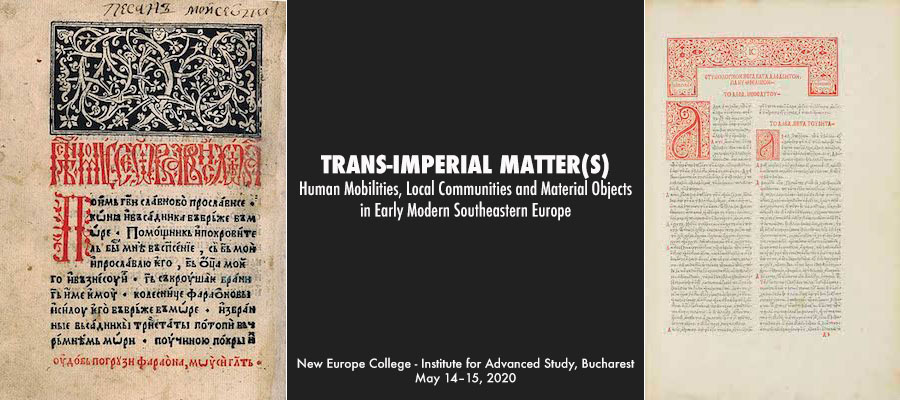Trans-Imperial Matter(s): Human Mobilities, Local Communities and Material Objects in Early Modern Southeastern Europe, New Europe College - Institute for Advanced Study, Bucharest, May 14–15, 2020
In recent years, scores of go-betweens and trans-imperial subjects have populated the pages of historical monographs the way they had the early modern world. This has been brought about by the increasing attention paid by scholars to different "connected histories" (global, imperial, transnational) that bound local communities to imperial centers and global flows of trade. However, a number of blind spots remain, both geographically and conceptually. On the one hand, the role of human mobility and inter-personal interactions in such analyses overshadows the role of inanimate objects, including raw materials, luxury objects and art pieces as establishing and defining the relationship between the local and the global. At the same time, it frequently ignores the fluid and changing nature of said objects and meaning ascribed to them by different interpretative communities, focusing on the perspective of the centers of power, thus reproducing the center-periphery dichotomies. These reciprocal interactions between human and material worlds on the move fueled the ongoing processes of negotiation, creation of meanings and reciprocal definition, influenced but not determined by imperial centers.
This conference aims to bring together these different strands of scholarship by revisiting the circulation and transformation of objects particularly luxury commodities and material symbols of status from the vantage point of trans-imperial borderlands in early modern Southeastern Europe. Do flows of commodities, gifts and raw materials reinforce or subvert established notions of center-periphery distinctions? How did local communities adopt, adapt or reject material objects? Did the agency of local communities and affect the objects themselves, transforming them both physically as well as discursively? In what ways these objects, in turn, served to construct, display and negotiate identities in a geographical space sandwiched between Habsburg, Ottoman, Russian, Venetian and Polish-Lithuanian imperial centers? In asking these questions, we intend to bring attention to multiple and frequently complex interactions between local, regional and imperial cultures through individuals, networks and objects that made them visible, recognizable and publicly accepted or contested.
The conference is organized in the frame of the European Research Council Consolidator Grant no. 646489 Luxury, Fashion and Social Status in Early Modern South-Eastern Europe (LuxFaSS), hosted by the New Europe College - Institute for Advanced Study, Bucharest.
